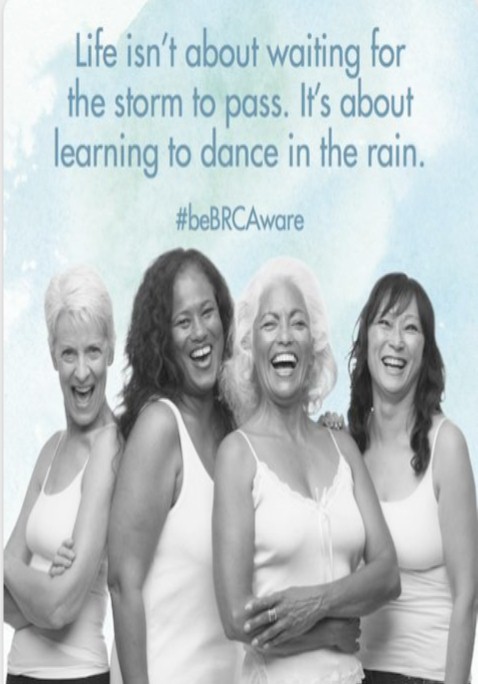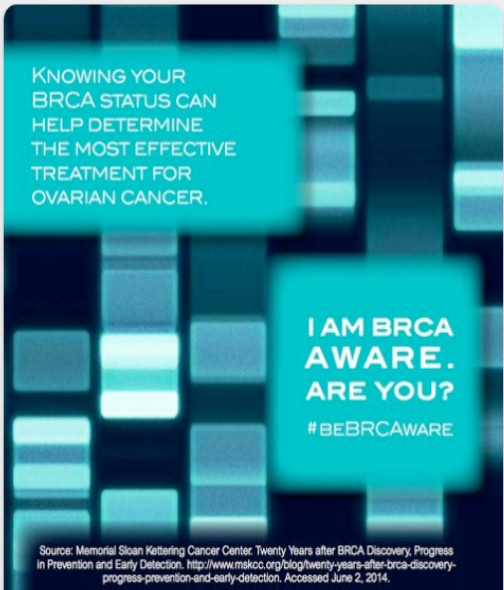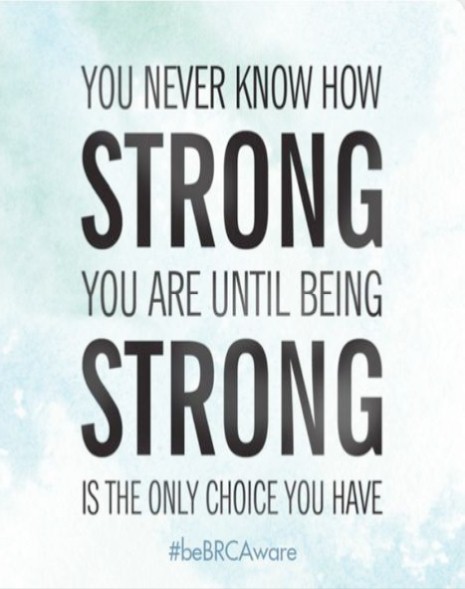I have been lucky enough not to have a close family member suffer from ovarian cancer? However, there have been a friends over the years whose parent or relative has passed away from cancer. But that doesn’t mean not hyper vigilant about getting my annual mammogram to avoid breast cancer. My hyper-vigilance has not really given much thought to ovarian cancer since no one close has suffered from this form of cancer.
That doesn’t mean I am not interested or want to learn more. Information is power as they say.
What is a BRCA gene?
BRCA1 and BRCA2 are human genes involved with cell growth, cell division, and cell repair. Although they are most commonly associated with BReast CAncer, approximately 15% of women with ovarian cancer also have BRCA gene mutations.1,2
Who should get tested for the BRCA gene?
Clinical practice guidelines recommend that all women with epithelial ovarian cancer be considered for BRCA testing3. The test is simple and easy. A blood or saliva sample can be taken at your physician’s office or at a local lab. Medicare, Medicaid, and most private insurance carriers cover BRCA testing for women with a diagnosis of ovarian cancer. Certain mutations in BRCA1 or BRCA2 can affect how you and your physician choose to manage ovarian cancer.
Important BRCA Facts You Should Know
- Women with BRCA gene mutations have an increased risk of developing ovarian cancer.4
- In the general population, 1.4 percent4 of women will be diagnosed with ovarian cancer, while up to 40 percent of women with BRCA 1/2 mutations will be diagnosed with ovarian cancer in their lifetime.5
- An estimated 15% of ovarian cancers are linked to BRCA mutations.1,2
- BRCA gene mutations can play a key role in serous ovarian cancer, the most common form of ovarian cancer.6
- Nearly one half of women with ovarian cancer who are BRCA-positive have no significant family history of breast or ovarian cancer.7
How you can help to spread awareness about BRC?
Do you know a woman diagnosed with or at risk for ovarian cancer? Visit website myocjourney.com, which provides information about diagnosis, BRCA gene testing, treatment plans, support networks that may be helpful to these women now and can help alert more women to what they need to know about BRCA and ovarian cancer.
Are you aware of the BRCA Gene or ever heard of the gene?
Stay Connected: Twitter // Facebook // YouTube
Disclosure: I received $150 from AstraZeneca, and any opinions expressed by me are honest and reflect my actual experience. This is a sponsored post for SheSpeaks/AstraZeneca.
References:
1. Pal T, Permuth-Wey J, Betts JA, et al. BRCA1 and BRCA2 mutations account for a large proportion of ovarian carcinoma cases. Cancer. 2005;104(12):2807-2816.
2. National Cancer Institute. BRCA1 and BRCA2: Cancer risk and genetic testing. http://www.cancer.gov/cancertopics/factsheet/Risk/BRCA. Accessed June 2, 2014.
3. National Comprehensive Cancer Network. NCCN Clinical Practice Guidelines in Oncology: Genetic/Familial High-Risk Assessment: Breast and Ovarian. Version 4;2013.2





I’ve heard many things about this – some want to know, some worry that if they do know, they won’t live fully. Not sure how I feel. Might help to know some, to make differences in your life, though! 🙂
I really should do genetic testing to find out for myself. It’s amazing what technology offers today.
I had no clue what BRCA stood for. I am going to tweet this post out to help make others aware as well.